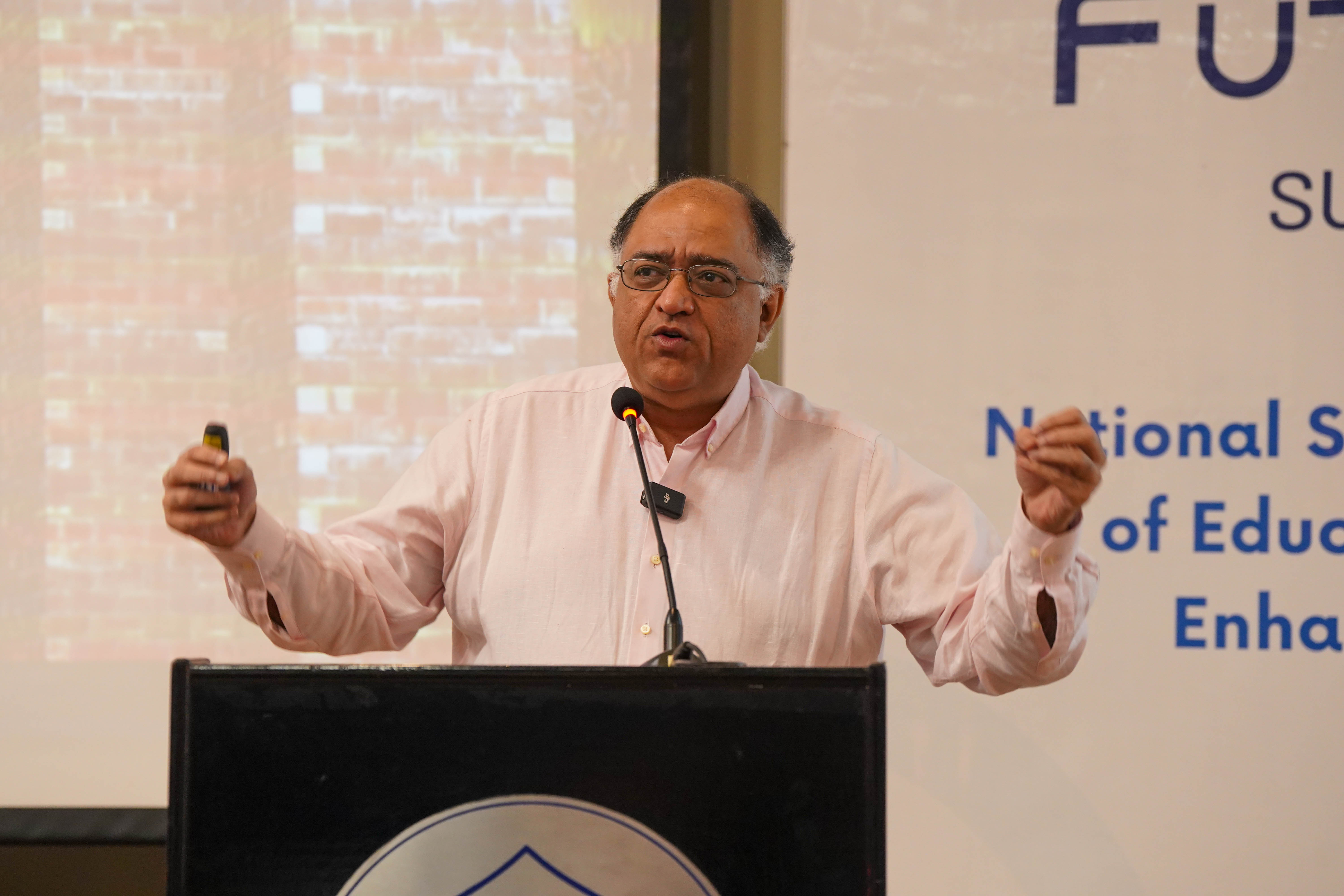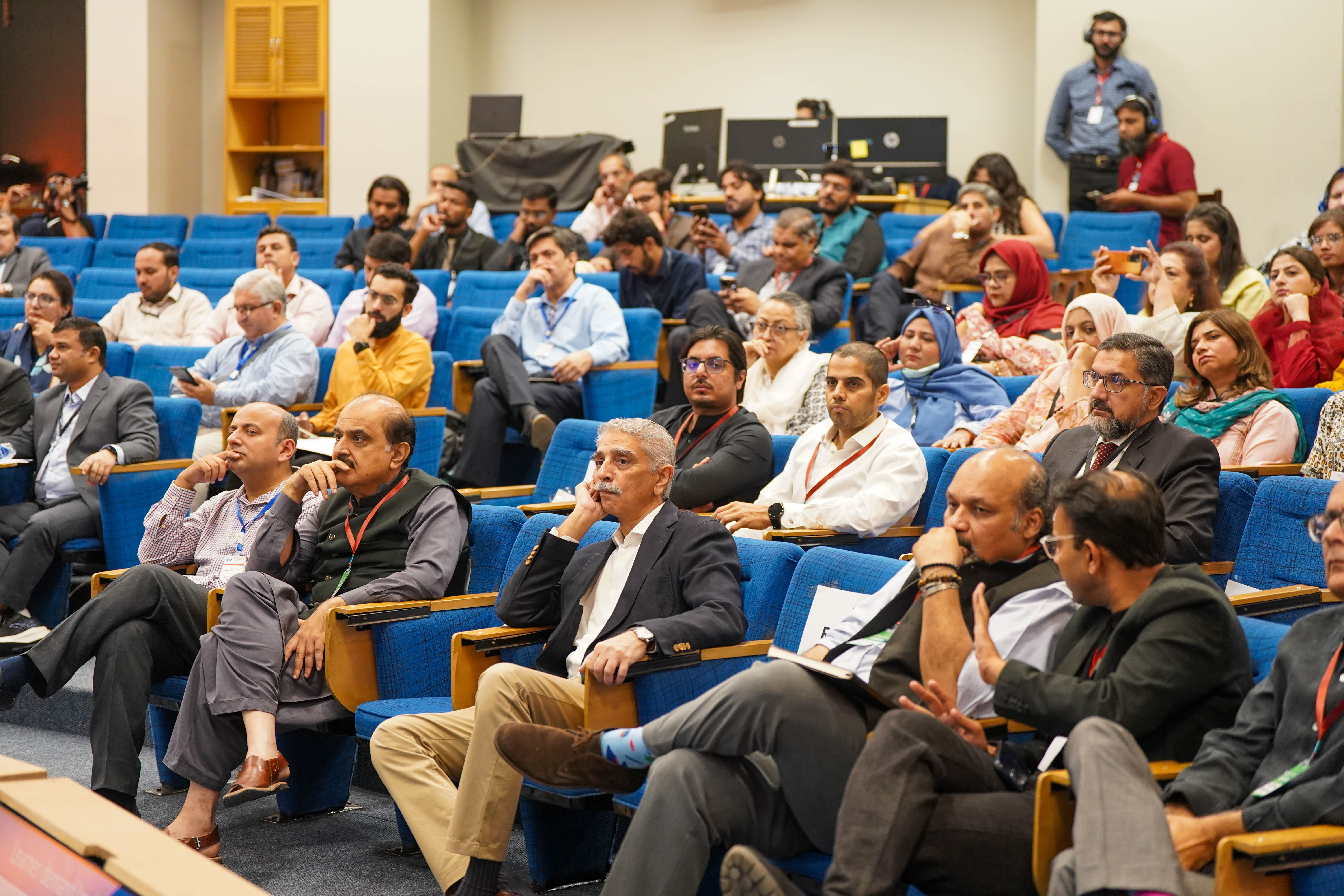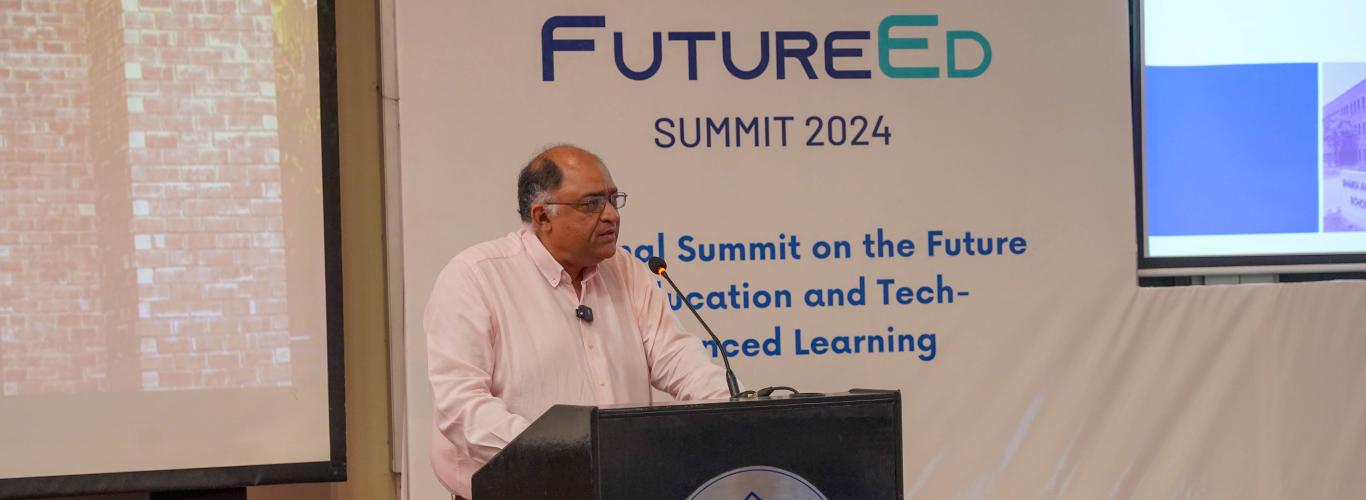Dr. Ali Cheema on Technology, Change, and the Future of Education: Insights from the FutureEd Summit 2024
The FutureEd Summit 2024, held on September 21 and 22 at LUMS, brought together educators, policymakers, and technology experts to address the evolving landscape of K-12 and higher education in Pakistan. A highlight of the summit was the keynote address by Dr. Ali Cheema, Vice Chancellor, LUMS, titled 'Education in an Age of Disruption’. His address presented a thought-provoking analysis of the challenges and opportunities facing education in an age of rapid technological change.
Dr. Cheema opened his address by framing the historical context of technological disruption, emphasising that while advancements can drive economic growth, they often exacerbate inequality. He argued for an education system that promotes inclusivity and equips students with the skills necessary to navigate a volatile job market. “The world is not equal,” he stressed, advocating for an educational framework that prepares all learners, across demographics, for future challenges.
An important aspect of his address was the shifting skill requirements in the workforce. Drawing from a World Economic Forum survey, Dr. Cheema highlighted that employers are increasingly prioritising analytical and creative thinking over traditional skills. “We must teach students how to think and learn, not just prepare them for specific jobs,” he asserted, suggesting a move towards fostering adaptability and lifelong learning.
Dr. Cheema raised critical concerns about the role of artificial intelligence (AI) in education, warning against over-reliance on AI tools that could deskill students. He emphasised the need for a balanced approach to technology in the classroom, stating, “If we allow AI to become a crutch, we risk diminishing our students’ ability to engage with complex problems.”

Another pressing issue was the mental health crisis among students. Citing alarming statistics about anxiety and depression, Dr. Cheema argued that educators must foster environments conducive to mental well-being. He linked this rise in mental health issues to the changing nature of childhood experiences and the increasing pressures of academic performance. “We must acknowledge and address the emotional landscape of our students,” he urged. Dr. Cheema also addressed the diversity of learning needs in classrooms, particularly the challenges faced by students with learning disabilities. He called for a more responsive education system that leverages technology to create customised learning experiences, enabling all students to thrive.
Reflecting on the current educational scenario, Dr. Cheema critiqued conventional education methods, which often prioritise memorisation and exam performance over critical thinking. “Our education system is segmented and exam-focused, leading to a narrow approach to learning,” he explained. He advocated for a curriculum that integrates critical reasoning, ethics, and humanistic inquiry, allowing students to deeply engage with complex ideas and ask meaningful questions.
Dr. Cheema concluded with a vision for the future of education, calling for the integration of creative arts, play, and active learning methodologies. He proposed that classrooms should become spaces where students are actively engaging with material by posing questions and collaborating with peers rather than passively receiving information. Dr. Cheema’s insights serve as a rallying call for educators and institutions to rethink their strategies and focus on the development of adaptable, engaged citizens prepared to navigate the complexities of the modern world.


